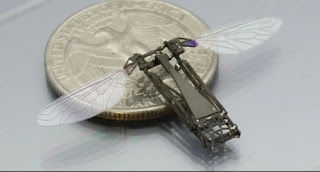 |
| Zuckerberg and Peres |
Israeli President and inveterate peace advocate Shimon Peres visited Facebook HQ in California this week, where Facebook President Mark Zuckerberg helped him set up his own Facebook page dedicated to world peace. Facebook also launched a new peace website located at
peace.facebook.com, where the goal is to have people on opposite sides of conflicts communicate directly with each other and form relationships, in the hope that this will promote peace.
It's an interesting experiment, and it raises some important questions. Is peace the natural state of mankind with war being a temporary aberration usually caused by misunderstandings? Or is war the natural state, as people compete ferociously for the things they want, and peace is just a lull between outbreaks of fighting? There's probably truth in both perspectives.
What Facebook can do, by creating a vast public marketplace of ideas, is bring clarity to the issues, help define what matters most to people, and do this at an accelerated pace that brings contradictions to a head much quicker than before.
It may be that through the Facebook experiment, people on opposite sides of conflicts will find they have more in common than they expected. It may also be that some contradictions cannot be reconciled, because many people are unwilling to give up their desires and ambitions, and would rather fight than settle for an unsatisfactory status quo. The Internet may actually accelerate conflict as it brings to the surface long held grievances that in some cases have simmered for centuries. The one thing that does seem certain is that the experiment will go on, and things previously hidden will continue to be revealed, releasing enormous amounts of energy that will have highly unpredictable consequences.
























